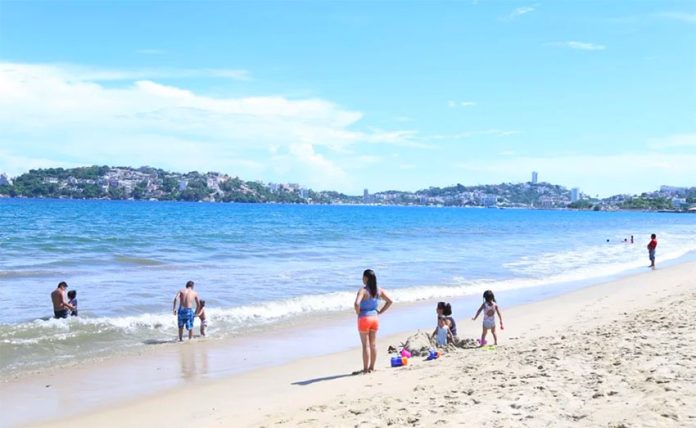President López Obrador has signed into law a guarantee of free access and transit on beaches throughout Mexico and establishes sanctions for those who prohibit access with fines of up to 1 million pesos (US $49,400).
The move comes after the Congress approved a reform to the General Law on National Assets in late September that established fines for owners of coastal properties who prevent, restrict, obstruct or place conditions on access to beaches. By law all beaches in Mexico are public.
Fines can be issued if fences, barriers or buildings prevent entry to a beach or if property owners, hotel security staff or other hotel personnel block access when there is not an alternative public path.
Concession or permit holders could see their permissions to operate revoked if they are found in violation of the new law.
“Mexican beaches are constitutionally and legally public, so there must be access roads so that any national or foreign visitor who wishes to enjoy them can do so. However, despite this legal status, there are still multiple complaints from citizens who have seen their right to enjoy them restricted,” Senator Mónica Fernández said when the Senate passed the measure.
“In the event that there are no public roads or accesses from the public thoroughfare, the owners of land adjacent to the Federal Maritime Terrestrial Zone must allow free access to it, as well as to the maritime beaches through the accesses agreed upon by the Ministry of the Environment and Natural Resources with the owners, mediating compensation in the terms established by the regulation,” the bill reads, and that, “said accesses will be considered easement.”
The Federal Maritime Terrestrial Zone is the strip of beach spanning 20 meters from high tide which belongs to the Mexican people.
In the past, the government has cautioned hotel owners that their properties could be closed and demolished if they don’t comply with orders to grant access to public beaches.
The director of the federal office of maritime law zones said last December that one hotel project in Cancún, Quintana Roo, was demolished because it would have blocked public access to the beach.
In February of this year, more than 1,000 people gathered outside a beach club in Playa del Carmen to protest the lack of public access to the country’s beaches.
Source: El Universal (sp)
